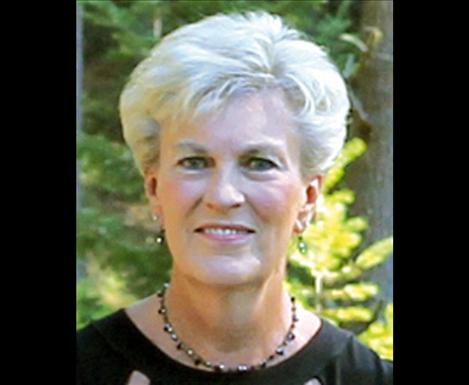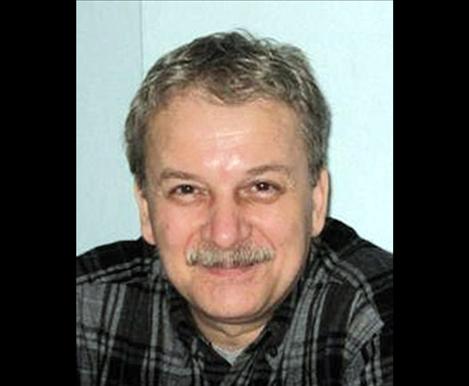Two candidates run for Polson Ward 2 city commissioner
Hey savvy news reader! Thanks for choosing local.
You are now reading
1 of 3 free articles.
POLSON — Two people threw their hats in the ring for the Ward 2 Polson City Commissioner position — Jill Southerland and Murat Kalinyaprak.
Kalinyaprak is a self-employed computer professional with 34 years of experience. He has lived in the Polson area for 22 years. He noted that he has attended most Polson City Commission meetings and participated in city government for the past nine years.
Jillayne “Jill” Southerland is a retired college professor and administrator. She earned bachelor’s and master’s degrees in education, and a doctorate in education and human development.
She and her husband Mike have lived in the area for seven and a half years.
Southerland served on the La Crescenta City Council in California for four years.
The candidates were asked to answer three questions and were allowed a total of 500 words for all three questions. The first question asked what they believe is the most important local and the most important state issue and how they would use their position as city commissioner, if elected, to bring about a solution.
“I believe there are several issues Polson is facing,” Southerland said, “but the one I want to focus on most is the current perception of the city council by some of its citizens. I will serve the citizens of Polson with openness and fairness. I do not have an agenda for serving other than to make the best decisions for this city and its citizens.”
Southerland wants to improve communication and accountability between the council members and the citizens by utilizing a website, if elected, to post council issues, projects, decisions and events.
“Citizens will be able to dialog with me via this website. I will also hold ward ‘town hall’ meetings to discuss city actions with constituents and listen to their concerns,” she said.
“Water rights and water availability for the future is the biggest issue in Montana right now. Getting the water adjudicated in some form, whether it is through a water compact or other mutually agreed upon decision, will be vital for the state’s future. I will work with the Polson community to see that this is accomplished,” Southerland said.
Kalinyaprak said that during the past decade, as other concerned citizens and he began to scrutinize the city government’s operations, public participation has gradually been restricted, and eventually been reduced down to practically none.
“Obtaining public information has become an ordeal. Many requests are denied simply as involving litigation or personnel matters,” Kalinyaprak said. “Although Polson City Code requires a reply within three days, citizens are often left waiting for weeks or months. In one particular case, it took me one year and a half to get copies of one document.
“During City Council meetings, citizens’ questions are not answered, per City Attorney’s often interjecting directives. Public (members) are allowed to make only one single comment of a maximum three minutes.
‘Citizen participation’ is meaningless without being able to become informed about issues. But in Polson, it doesn’t matter because City Council doesn’t listen to public comments anyway.”
Kalinyaprak noted that City Council meetings have become so short that “it is too obvious that they come already decided about how to vote on the issues that are put in front of them already ‘precooked.’ I wonder when Polson will start having ‘drive through’ Council Meetings?
This is no way for free citizens to be governed, supposedly by our own consent. This is no way to be proud Americans.”
Since the overgrown “negative” can no longer be cuddled under the carpet, according to Kalinyaprak, the evermore-popular political buzzword “positive” just does not sell anymore.
“If I am elected, even being outvoted by the ‘collaborating majority’ will not stop me from using my legal standing as an ‘elected official’ to request legal opinions from Lake County and Montana State attorneys, and to request investigations by state and federal agencies, into any unethical or criminal conduct by past or present City officials and employees.
I may not directly effect State or even County issues, but I will hope that my acts as a responsible City Commissioner will inspire and motivate others to join in, and swell up to County and State level actions.”
The candidates were asked “What is your vision for this community in 10 years?”
Kalinyaprak said he’d like to rephrase and redirect this question to Polson voters and let them answer it.
“Do you want to be still able to live in Polson 10 years from now? My philosophy is: Don’t sell what you can’t buy back the next day for the same money,” he said. “Selling our assets is not a sustainable way of generating income. We are already running short on lake shores, mountain views, neighborhoods, friendships, quality of life and way of life to sell. Where will we go then? California? Florida? East Dakota?
If elected, I will do everything I can for myself and for my supporters to not get “out taxed” and “evicted” from Polson, Kalinyaprak added.
Southerland said, “I believe that Polson is on the brink of positive change for its future. I would like to experience a Polson where its citizens are proud of what this city has become: a positive community dedicated to serving its people and sharing the wealth of its assets with all who visit here. I would enjoy the open, transparent dialog between the city, its employees, and its citizens; a community that is known for its working together positively to accomplish the business of the city. I would envision all store fronts occupied and businesses to be thriving. I would see streets that are well maintained, and city services that continue to accommodate a thriving community. I would see more young families able to live here with sustainable income and affordable housing. I would experience with my senior friends a community that supports and cares for its older adult citizens. Polson would be a destination city that people travel to in order to enjoy the beauty of the area and the activities available.”
The third question candidates were asked was if they were elected, what would they need from the people in the community?
“If I am elected, I would ask for input from the citizens to help me represent them in all aspects of the city business,” Southerland answered. “I would like citizens to contact me by website, and attend town hall gatherings and city events in order to share their issues and concerns with me. I would hope for a developing trust in me that I will have the best interests of the city and the citizens of my ward as my goal in serving on the council truthfully and honestly.”
I would want them all to become more involved,” Kalinyaprak explained, “to attend council meetings as often as they can in order to participate in government and experience democracy first hand, to realize that democracy is not just an ancient Greek word of mythology but it is our American ideal way of life. Use it or lose it.”
(Editor's note: Each candidate was allowed up to 500 words for their answers.)

















